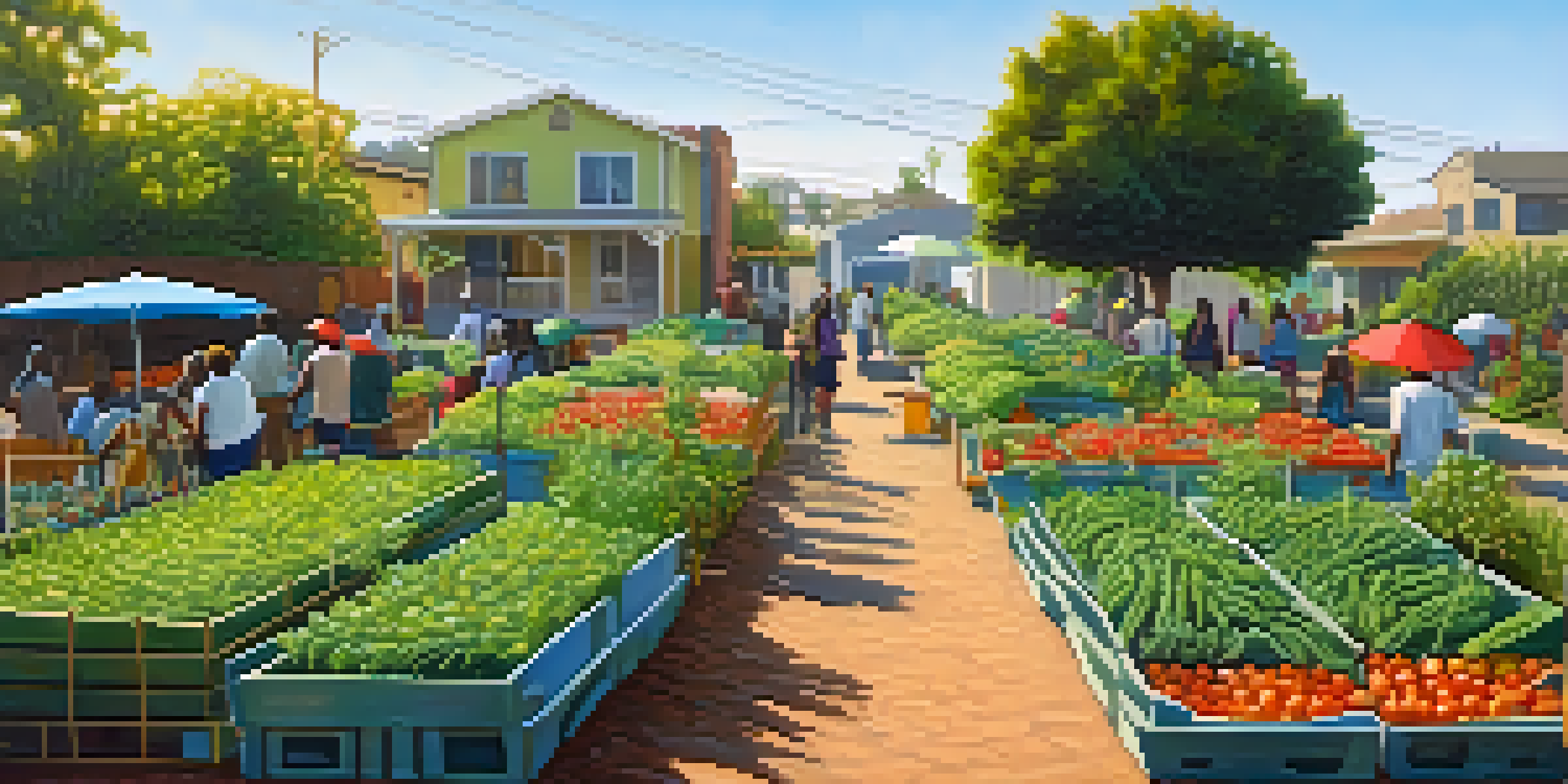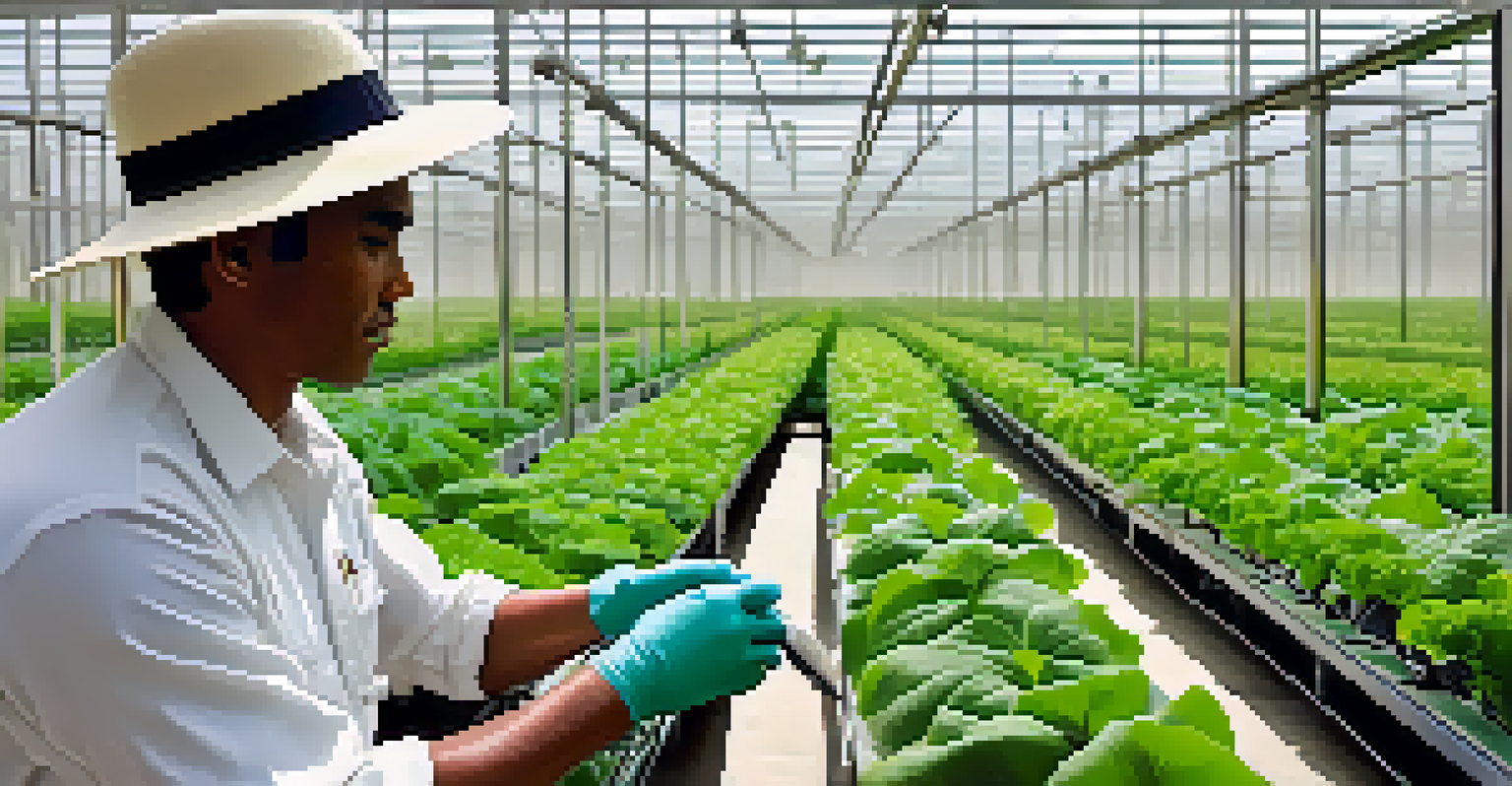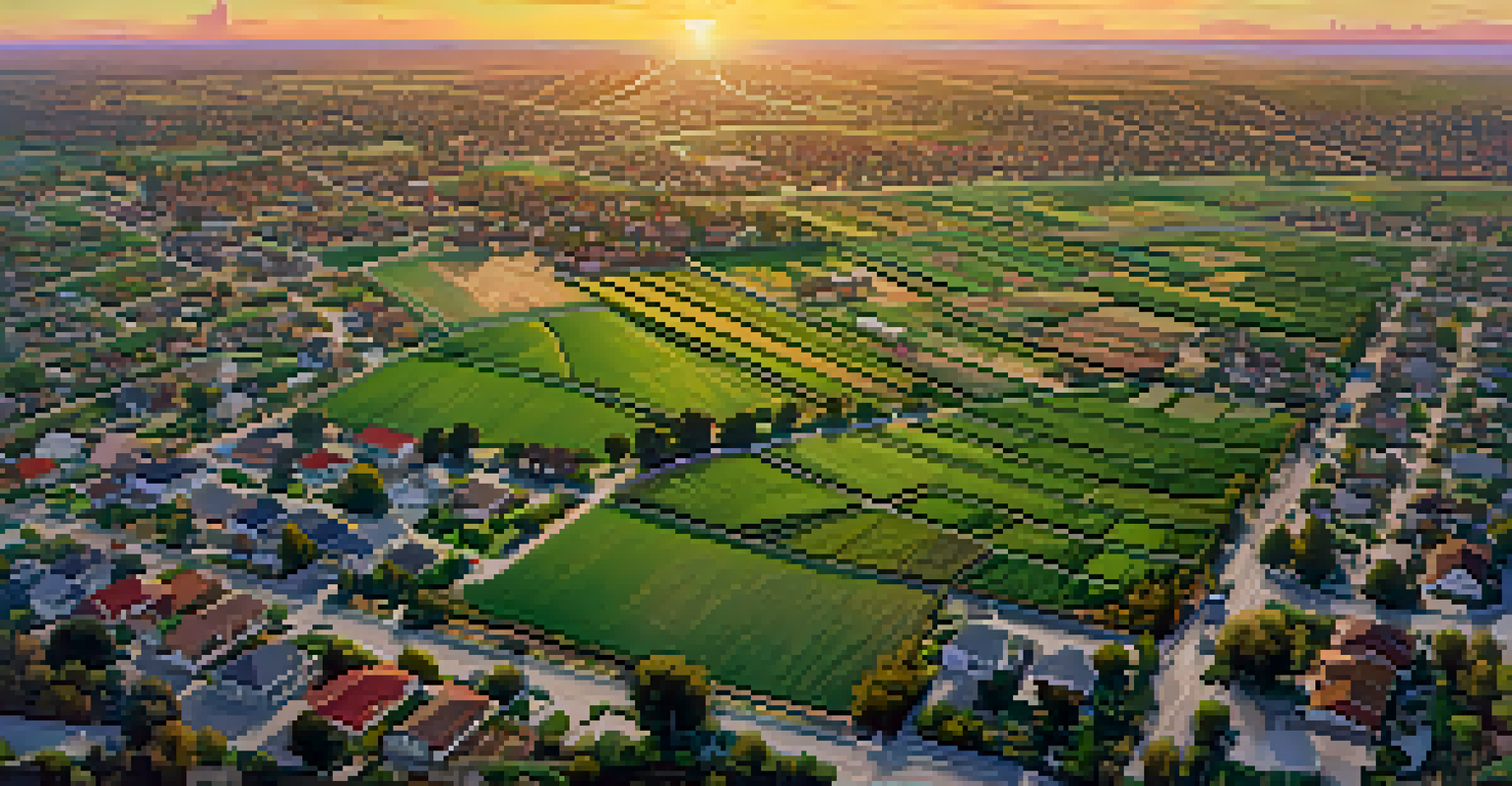Key Historical Events That Shaped Compton's Agriculture

The Founding of Compton and Early Farming Practices
Compton was founded in the late 19th century, with agriculture as a cornerstone of its economy. Early settlers cultivated crops like beans, onions, and tomatoes, taking advantage of the fertile soil. This initial agricultural boom laid the groundwork for the community's development, attracting more residents drawn by the promise of farming.
The farmer has to be an optimist or he wouldn't still be a farmer.
As the population grew, so did the demand for food, leading to diversified farming practices. Farmers began experimenting with different crops and introducing new techniques, which enhanced productivity. This period marked the beginning of Compton's identity as an agricultural hub in Southern California.
Moreover, these early farming endeavors established a sense of community among residents. Local farmers formed cooperatives to share resources, knowledge, and market access, fostering a collaborative spirit. This early camaraderie set the stage for Compton's agricultural evolution.
The Impact of the Great Depression on Local Agriculture
The Great Depression in the 1930s hit agriculture hard, including in Compton. Many farmers faced financial ruin, leading to a decline in crop production and a shift in the local economy. This challenging period forced farmers to adapt or abandon their land, altering the agricultural landscape significantly.

During this time, some farmers turned to alternative crops that required less investment, such as sweet potatoes and corn. Others diversified their operations, incorporating livestock to ensure a steadier income. These adaptations not only helped some survive but also transformed Compton's agricultural practices.
Farming Roots Shaped Compton's Identity
Early agricultural practices established a sense of community and laid the foundation for Compton's identity as an agricultural hub.
Despite the hardships, the resilience of Compton's farmers during the Great Depression forged a stronger community. Farmers banded together to support one another, sharing resources and information. This collaboration helped lay the foundation for a more united agricultural sector in the years to come.
Post-War Agricultural Boom and Urban Development
After World War II, Compton experienced a significant agricultural boom fueled by increased demand for food. The post-war economic expansion led to a surge in suburban development, putting pressure on local farmers to produce more. This era saw the rise of large-scale farming operations that focused on efficiency and productivity.
Agriculture is the most healthful, most useful, and most noble employment of man.
With advancements in technology and farming techniques, Compton's agriculture became more mechanized. This shift allowed farmers to cultivate larger areas and increase their yields. However, it also marked the beginning of tensions between urban expansion and agricultural land use.
As neighborhoods grew and land prices rose, many farmers faced the difficult choice of selling their land for development. This transition significantly altered Compton's agricultural landscape, as traditional farms were replaced by residential and commercial properties, leading to a decline in local farming.
The Role of Community Gardens in Urban Agriculture
In response to declining agricultural land, community gardens began to flourish in Compton during the late 20th century. These gardens provided residents with the opportunity to grow their own food while promoting sustainability and environmental awareness. They became vital spaces for education and community engagement.
Community gardens not only enhance food security but also foster a sense of belonging among residents. They serve as gathering places where people can share gardening tips, recipes, and cultural traditions. This revival of local agriculture has helped reconnect the community with its farming roots.
Technology Transforms Modern Farming
Innovations like hydroponics and precision farming are enabling Compton's farmers to enhance productivity while minimizing environmental impact.
Furthermore, community gardens have sparked interest in urban farming initiatives. Local organizations and residents are now working together to promote sustainable practices, turning vacant lots into productive green spaces. This movement reflects a growing recognition of the importance of agriculture in urban environments.
The Influence of Technology on Modern Agriculture
As technology advanced in the 21st century, Compton's agriculture began to evolve once again. Innovations such as precision farming, hydroponics, and vertical farming have transformed traditional practices. These technologies enable farmers to maximize their yields while minimizing environmental impact.
For instance, hydroponics allows for soil-less cultivation, making it possible to grow crops in urban settings with limited space. This method has gained popularity in Compton, where land is at a premium. As a result, farmers can produce fresh produce year-round, contributing to local food systems.
The integration of technology in agriculture has also facilitated better data management and resource allocation. Farmers can now use software and apps to monitor crop health, weather patterns, and market trends. This data-driven approach empowers them to make informed decisions, enhancing productivity and sustainability.
Environmental Challenges and Sustainable Practices
With the rise of agriculture in Compton, environmental challenges have emerged, particularly regarding water usage and soil health. Farmers face increasing pressures to adopt sustainable practices that minimize their ecological footprint. These challenges have prompted a shift towards more responsible agricultural methods.
Many local farmers are now implementing water conservation techniques, such as drip irrigation, to optimize water use. Additionally, they are exploring organic farming methods that promote soil health and biodiversity. These sustainable practices not only benefit the environment but also meet the growing consumer demand for organic products.
Sustainable Practices for Future Growth
Emphasizing sustainable agriculture methods is crucial for addressing environmental challenges and preserving Compton's agricultural heritage.
Community awareness around these issues has grown as well, leading to initiatives aimed at educating residents about sustainable agriculture. Workshops and events are held to emphasize the importance of environmental stewardship. This collective effort reflects a commitment to preserving Compton's agricultural heritage for future generations.
The Future of Agriculture in Compton
Looking ahead, the future of agriculture in Compton holds both challenges and opportunities. As urban development continues, preserving agricultural land will be critical. Policymakers and community leaders must work together to create strategies that balance growth with the need for local food production.
Emerging trends in urban agriculture, such as rooftop gardens and urban farms, offer innovative solutions to food security issues. These initiatives can transform underutilized spaces into productive areas, fostering a new generation of urban farmers. Community involvement will be key in driving these efforts forward.

Ultimately, the future of Compton's agriculture will depend on the collaboration between farmers, residents, and policymakers. By embracing sustainable practices and innovative technologies, Compton can continue to thrive as an agricultural community, ensuring access to fresh, local produce for years to come.